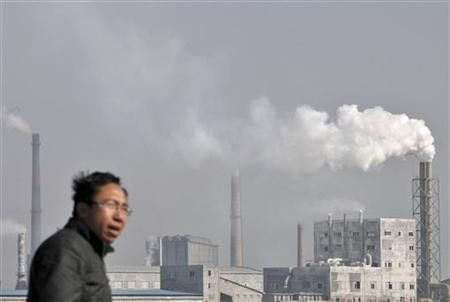China sets out disputes facing arduous climate talks

China, the world's biggest greenhouse gas emitter, wants rich nations to vow bigger cuts to emissions as part of a new international deal on fighting global warming, Beijing's top climate negotiator said on Tuesday.
The negotiator, Xie Zhenhua, said he expects arduous wrangling about that and other issues facing governments seeking to settle on the key parts of a comprehensive climate change pact at talks in Durban, South Africa, in late 2011.
Above all, Xie said in a policy-setting essay in China's official People's Daily, Beijing will not budge from demanding a second lease of life for the Kyoto Protocol, the greenhouse gas emissions pact which Japan, Russia, Canada and other critics have said does too little to curb the fast-growing emissions of China and other big developing countries.
The negotiating talks remain arduous, Xie said.
There's still much work that needs to be done if we're going to convert political will into progress at Durban.
Xie's paper was China's first lengthy overview of climate change negotiations since the last major round in Cancun, Mexico, late last year. Those talks brought progress on funding to cope with global warming and sharing green technology, but left key points of contention to be dealt with this year.
Although Xie revealed no new negotiating positions from China, his comments underscored the entrenched differences that will test negotiators facing warnings that droughts, floods and other extreme weather will worsen with global warming.
A main dispute is about the Kyoto Protocol.
The initial phase of the Protocol expires in late 2012, and Xie said the most urgent task in Durban would be locking in a second phase so there was no gap in the treaty's status, and locking in fresh emission cut vows by rich nations.
A second phase of commitment to the Protocol is the unwavering demand of the developing countries, and this concerns the continuity of the current legal framework, and political trust between developed and developing countries, Xie said.
BIGGER CUTS
China's emissions have more than doubled since 2000, and have outstripped those of the United States in recent years. In 2009, China's emissions of carbon dioxide, the main greenhouse gas from burning coal, oil and gas, reached 7.5 billion tons, a rise of 9 percent on the previous year.
That growth is set to continue for many years, and has amplified demands for China to spell out in a treaty how it will control and ultimately cut them.
China instead wants to keep Kyoto as the pillar climate treaty, under which poorer nations, including it, take voluntary, non-binding steps to curb the growth of emissions while they focus on economic development.
Nearly all rich countries agreed to legally binding emissions goals under Kyoto, with the big exception of the United States, which refused to become a party.
Xie also said China wanted rich countries to offer bigger cuts to greenhouse gas emissions than those they had previously offered.
Last year, governments agreed to a goal of limiting the rise in global temperature to below 2 degrees Celsius (3.6 F) above pre-industrial times. But the United Nations and many experts say the pledges for cuts in greenhouse gas emissions fall far short of what is needed to reach that goal.
Xie said developed nations should raise the level of their emissions mitigation commitments. In return, he said, many developing countries would accept using an appropriate legal form to clarify the mitigation actions of developing countries.
© Copyright Thomson Reuters {{Year}}. All rights reserved.





















